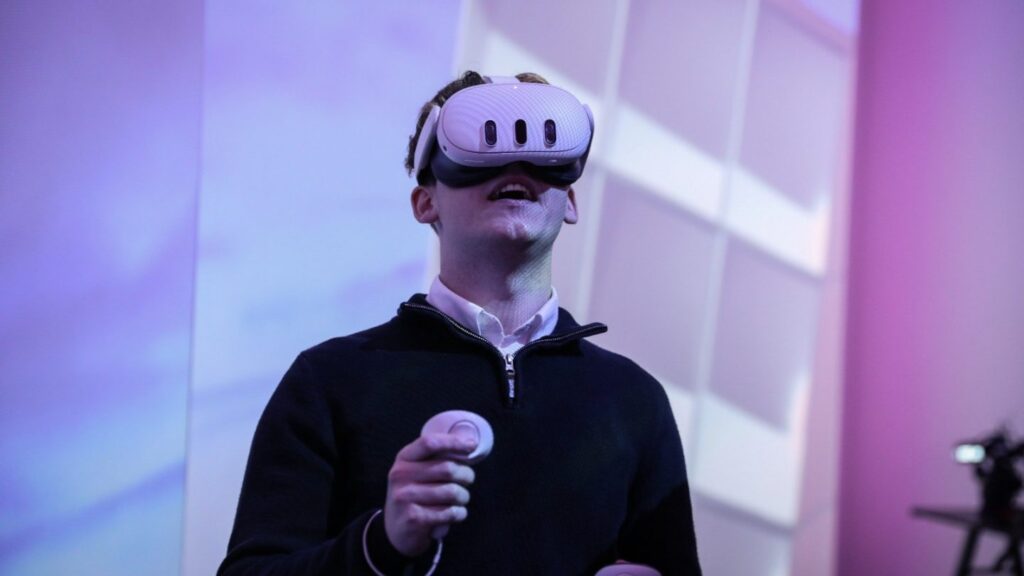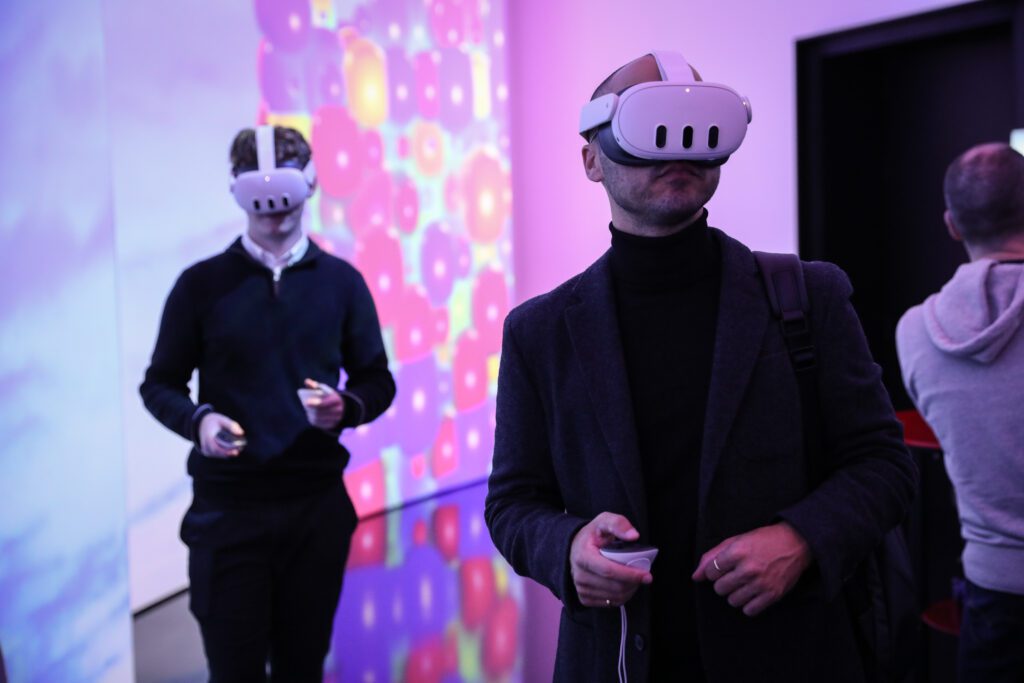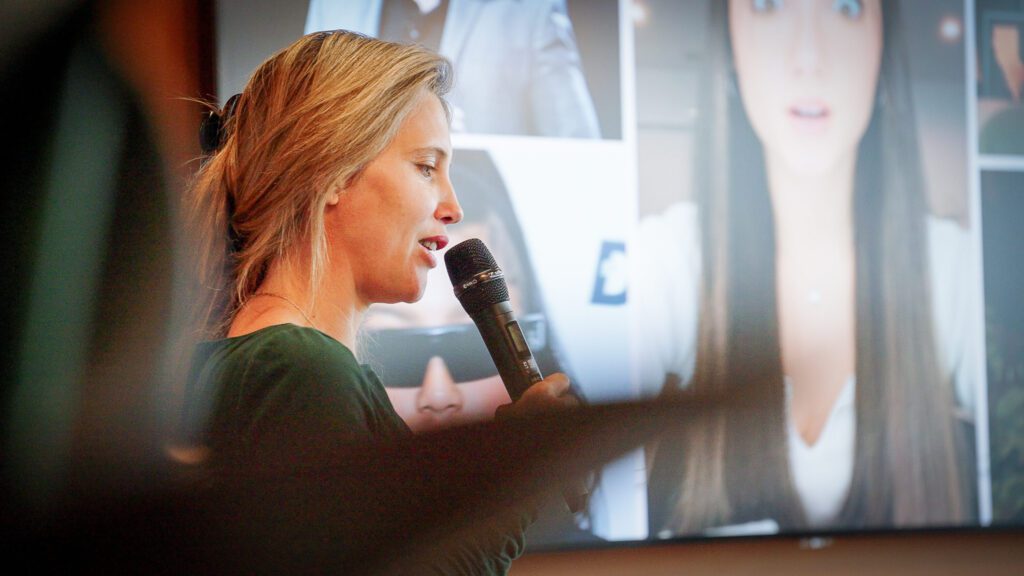Message from MD 2025
The Trends Shaping Events in 2025


Multi-Sensory Moments
Experiential learning is emerging as a theme shaping events in 2025 while experiential marketing is thriving. Active participation is a key metric for event planners when contending with online events, facilitated through group workshops and activities where attendees can explore, apply concepts, gain memorable experiences and meaningful connections. On the flip side, networking is a top goal for event attendees. In the digital age social re-wilding has gained prominence globally, defined by the need to engage with the world in meaningful ways, connect with the environment and each other. As screen time increases, attendee’s appetite for multi-sensory escapism and spending on experiences has increased. Many consumers are seeking brands that can provide ‘multi-sensory moments’ like that of the Mercer Labs exhibition. Despite the rise in online over recent years, audiences are enjoying physical experiences and interacting with brands in this environment.
The rise of intimacy
In reflection of the growing preference for personalised experiences and reconnecting with community, micro events within broader live experiences or local regions have become a top trend as we head into 2025. These cater to specific audience segments and interests with customised content and focused networking opportunities to create a feeling of exclusivity and intimacy and foster connections. For B2B events especially, the power of the more intimate environment helps to connect with high-value audiences and create impactful engagement.
Tactile experiences
Event planners are engaging all the senses to inspire emotional responses with tangible experiences, authentic CSR activities, and wellness-oriented workshops. Wellness was winning throughout 2024 and more events are incorporating workshops such as gong workshops and terrarium making or features in an event-app. Play has been a game changer for events, and while audiences are enjoying time for wellness they are also engaging in interactive and gamified sessions such as LEGO workshops and VR experiences.
Beyond Buzzword: The Impact of AI in 2025
AI has been a significant force at play in recent times, with only 2% having not heard about it according to Mintel, and it is starting to have a real impact. And as modern audiences evolve, along with their expectations, AI is helping event planners to keep up. Events have always been a prime opportunity to gain insight into an audience and capture zero-party data that attendees proactively share about their preferences, challenges, and purchase intentions. The next step for event planners will be combining the two — using data driven insights to personalise content and create interactive event apps that capture real-time data.

Business to Human
B2B brands face a very specific challenge, communicating often complex products in a way that is consistent with the rising use of digital platforms and self-service — engaging, authentic, and on-trend. Research by Google and CEB’s Marketing Leadership Council reveals that B2B buyers are eight times more likely to pay more for products that resonate on a personal level. This means events must maximise the humane through customer centric experiences and storytelling that engages audiences on an emotional level.
Colouring outside of the lines
Bold and brave campaigns are thriving — birthing the term Business To Human characterised by creative and authentic communications that appeal to the human side and build emotional connections. Creative branding, event identities, and social media moments can foster a space in which audiences can engage positively with the brand and brands can build loyal communities.
The Power of the Influencer
Along with the growing desire for community, personal recommendations that feel more authentic are influencing decision-making more than ever. In the United States, Europe, and Japan, 10 to 15 percent of consumers say they follow social-media influencers and that they have made a purchase based on an influencer’s recommendation. Even within the financial industry where factual resources have been the go-to to educate audiences, people are now relating to those who make financial advice understandable and relatable on social media and podcasts. For instance, Ally Bank and Credit Karma have partnered with a FinTok influencer who shares personal finance content to 800,000 followers.
Driving Meaningful Change
Brands are also leaning into their human side by focusing events on engagement and positive impact. In 2025 the importance of ethical marketing in shaping consumer trust and loyalty will only grow. Businesses that prioritise transparency, sustainability, and social responsibility will be better positioned to connect with increasingly conscious consumers. This shift towards accountability and ethical practices is not just a passing trend; it is becoming essential for brands seeking to drive meaningful change. By embracing this, we can build stronger relationships with audiences and contribute positively to global challenges.
Employees are a key stakeholder
One trend we have noticed is the investment into and empowering employees on one hand and employees seeking this on the other. As employee experiences are linked directly to customer experience, internal communications events, employee awards evenings, and talent competitions are worth the investment now more than ever. The pandemic may have taken some energy out of working culture and five years since it first began, it is still relevant. Whether a team is remote or in-person, connection needs boosting. Investing in your people as a key stakeholder often begins with a clear mission that unites leaders, making leadership events particularly crucial.
The rise of the B Corp
In 2024 25% of consumers had heard of a B Corp, 59% of UK consumers use certifications to influence purchase decisions, and almost 9000 businesses were officially certified. These businesses are all acting as a force for good to collectively create positive change holistically across environment, community, workers, clients, and governance. Broadsword became a certified B Corp in 2024, which means operating sustainably is at our core — from improving our supply chain to recommending sustainable solutions to our clients.
Related insights

Engage and Lead Through Change: How to Communicate with Intention

